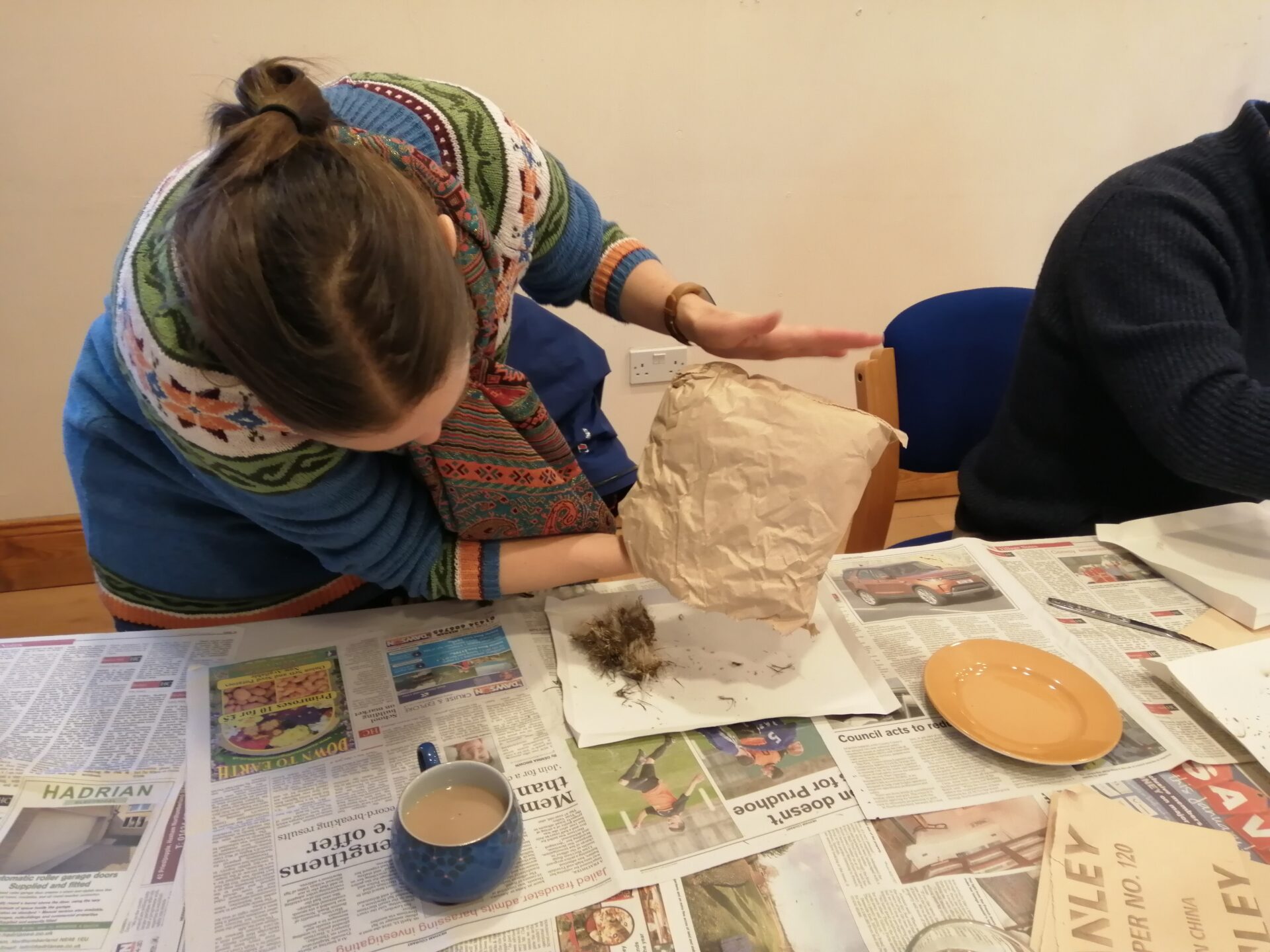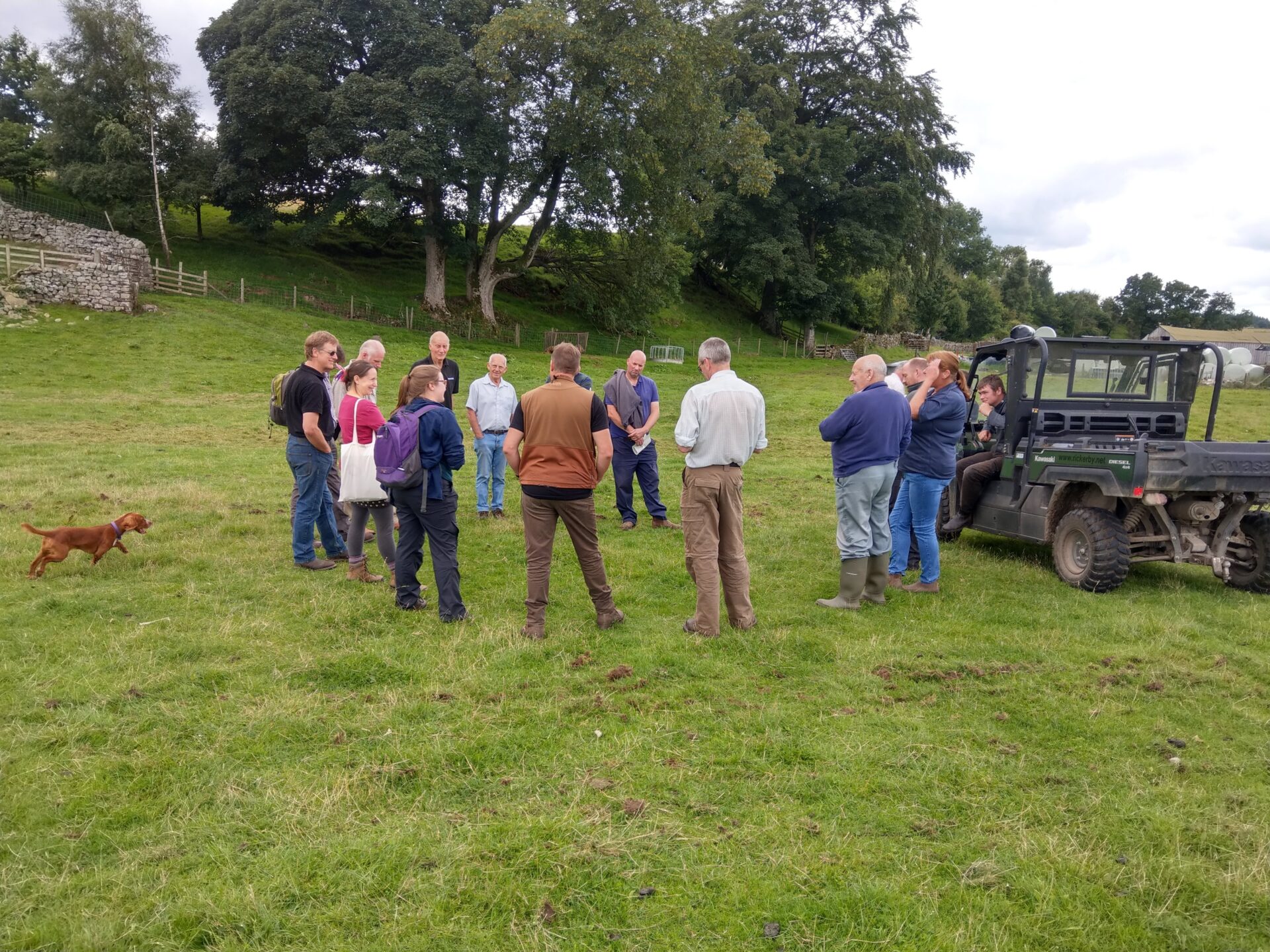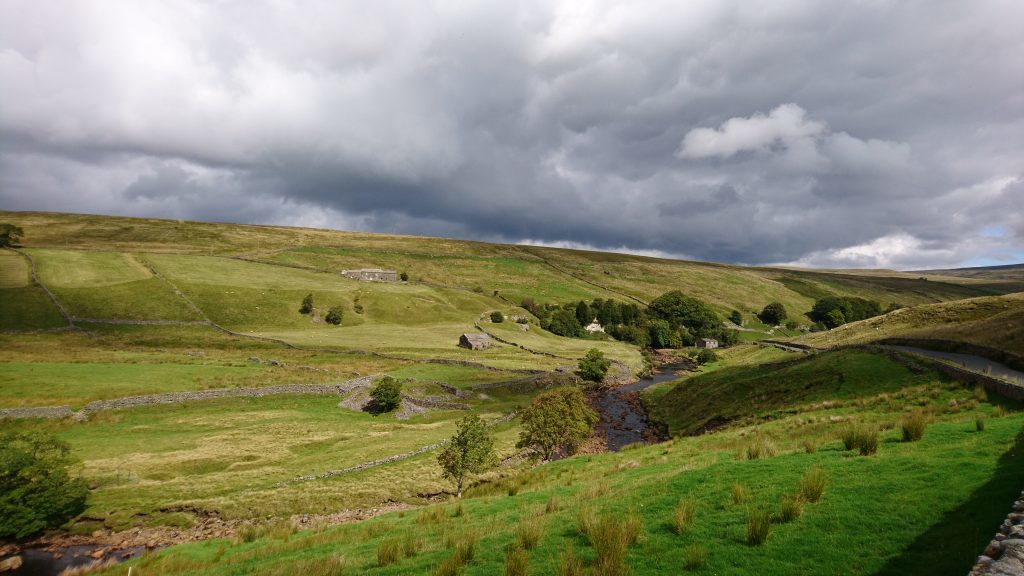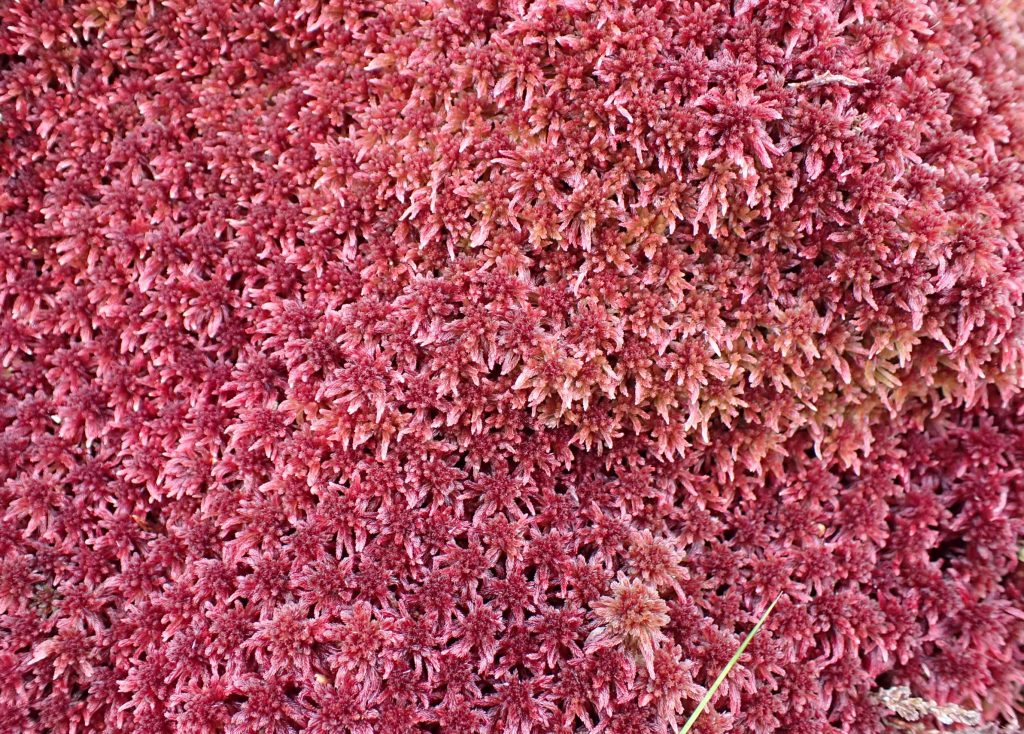News
Blog: Women in Science Day (Ruth)
11 February 2020
Blog: Women in Science Day
by Dr Ruth Starr-Keddle
I have been working for the North Pennines AONB Partnership as an ecologist and botanist for 10 years. Previously I completed a PhD in plant ecology (grassland management of roadside verges) at Newcastle University. Over the last 10 years I have worked on five separate projects, with a common theme of undertaking botanical surveys, organising upland hay meadow restoration, training teams of volunteers and working alongside upland hill farming communities.
I’ve always been interested in habitat management and restoration, learning about a range of different ecosystems at University. I have been lucky to meet a number of influential ecologists and botanists who inspired me to develop my career in upland hay meadow restoration. My PhD supervisor, Dr Roger Smith, undertook experimental, field-based research into the management and restoration of upland hay meadows – I found this very interesting. Although this wasn’t my main PhD topic, I was drawn to the species-rich wildflower meadows of the North Pennines and started doing botanical surveys as a volunteer. Whilst undertaking my PhD, I also ran the Newcastle University Conservation Society for three years and enjoyed the practical aspects of organising events, plus I helped teach botany to undergraduates. Undertaking these different aspects of ecology lead me to realise that I wanted to integrate field-based research, conservation, teaching and practical based work.

Although I have a PhD, it was the combination of academic work, field-based research, volunteering, teaching and practical conservation that led me to my first project at the North Pennines AONB Partnership called ‘Hay Time’. I didn’t have much experience of working with farmers at that stage and so I worked alongside a colleague for the first year. Bringing my academic background to the work allowed me to statistically analyse the botanical monitoring side of the projects I’ve worked on. My teaching experience has allowed me to train volunteers in botany and my botanical skills allowed me to undertake surveys.
I think people would be surprised to find that most of my job involves talking to people – it is less about the wildflowers and the meadows and much more about the people connected to these habitats – the farmers, the volunteers, the landowners and the general public. We wouldn’t have these habitats if it wasn’t for the farmers that manage these habitats. I spend quite a bit of my time having cups of tea in the kitchens of various farmers in the North Pennines.
People assume that I am out doing botanical surveys all year round and people tend to have a romantic view of my work. In reality, I’m only out in the meadows in June and July when the special plants are flowering. Upland hay meadow restoration is undertaken in August. For the rest of the year, I spend a lot of my time answering emails, speaking to farmers on the phone, typing in data and writing reports.

The unique point about my job just has to be the summer! Not many people get to walk through wildflower meadows buzzing with bumblebees and hearing the lapwings and curlews flying overhead, every day for a month. I love undertaking harvesting and spreading every August – watching the tractor with the green hay harvester mowing up the wildflower seeds and spreading the seeds into a nearby meadow.
Over the 10 years of working at the North Pennines AONB Partnership, I have taught myself how to hand-collect seeds from the rarer meadow plants such as wood crane’s-bill, great burnet, globeflower and melancholy thistle. I took myself on a few training courses and followed the Kew Gardens, Millennium Seedbanks’ seed collecting protocol. From trial and error, I developed my own methodology and taught others how to collect seeds, sow seeds into trays and grow plug plants. I have enjoyed working with volunteers to plant plug plants into over 30 meadows over the last few years.
Ecology and botany are difficult areas to work in without a range of experience behind you. It is also difficult to get a job just based on your academic profile – I went on various courses with the Botanical Society of the British Isles (BSBI), CIEEM and Field Studies Council. I did a range of volunteering, from practical conservation tasks to botanical surveying. If you want to stick to academic research, it is fine to follow the academic route of BSc, MSc and PhD, but if you want to do applied ecology and conservation, I really would recommend gaining additional field-based skills and volunteering.












